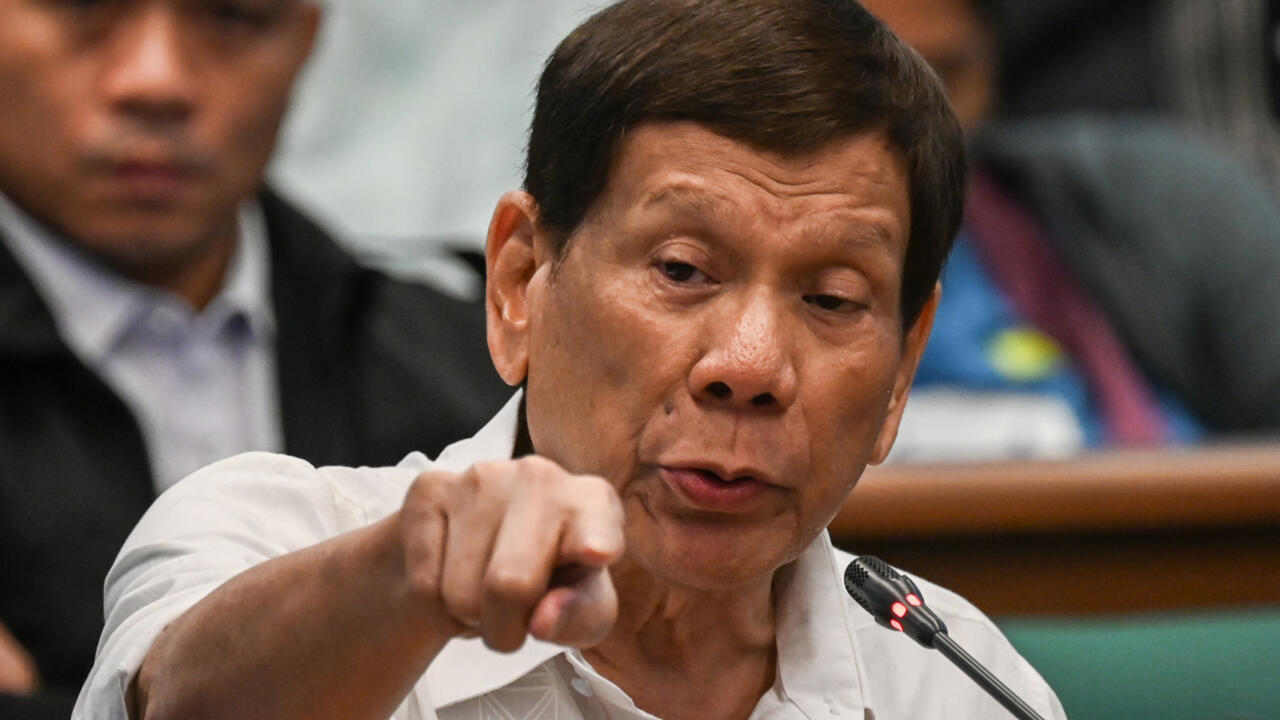Former Philippine President Rodrigo Duterte's recent arrest at Manila's international airport marks a significant moment in the ongoing discourse surrounding human rights and accountability in governance. The arrest, executed on March 11, 2025, was conducted under an International Criminal Court (ICC) warrant that cites crimes against humanity related to Duterte's controversial anti-drug campaign, which reportedly resulted in the deaths of tens of thousands. Despite previously dismissing the ICC investigation as politically motivated, Duterte stated he would "accept" the arrest, reflecting a complex interplay between legal accountability and political resilience.
Duterte has been investigated by the ICC over his brutal anti-drugs crackdown during his time in office that killed more than 6,000 people based on police data, though independent monitors believe the number of extrajudicial killings could be much higher.
Duterte, 79, was taken into custody amid chaotic scenes at the main airport in the capital Manila after returning to the Philippines from Hong Kong on Tuesday.
Interpol’s Manila office had received “the official copy of the arrest warrant from the ICC” on Tuesday morning, according to a statement from the Presidential Communications Office.
The ICC is probing alleged crimes against humanity and says it has jurisdiction to investigate alleged crimes that took place while a country was a member. The Philippines had refused to cooperate but the Marcos administration changed tack in November and started signalling it would comply if an arrest warrant was issued.
Marcos initially refused to co-operate with the ICC investigation, but as his relationship with the Duterte family deteriorated, he changed his stance, and later indicated that the Philippines would co-operate.
Appeals judges at the ICC ruled in 2023 the investigation could resume and rejected the Duterte administration’s objections. Based in The Hague, the Netherlands, the ICC can step in when countries are unwilling or unable to prosecute suspects in the most heinous international crimes, including genocide, war crimes and crimes against humanity.
The ICC's jurisdiction over crimes committed prior to the Philippines' withdrawal from the Rome Statute in 2019 underscores its commitment to addressing human rights violations irrespective of national boundaries . While Duterte retains a considerable support base within the Philippines and is even running for mayor of Davao City in upcoming elections, his arrest has polarized public sentiment. Victims' families view this development as a potential step toward justice after years of impunity.
Read more
Athol Fugard, anti-apartheid playwright, dies at 92 Champions League : Liverpool vs PSG: Predicted lineup, predictions and live streamingSarah H
Also on site :
- What Ozempic and Wegovy are really doing to your mouth
- ‘What kind of April fool’s joke in June is this!?’: Woman waits 45 minutes in line at Universal Studios for a passholder ‘special gift.’ Then she gets it
- Steven Van Zandt to miss Bruce Springsteen shows as he undergoes emergency surgery on tour

